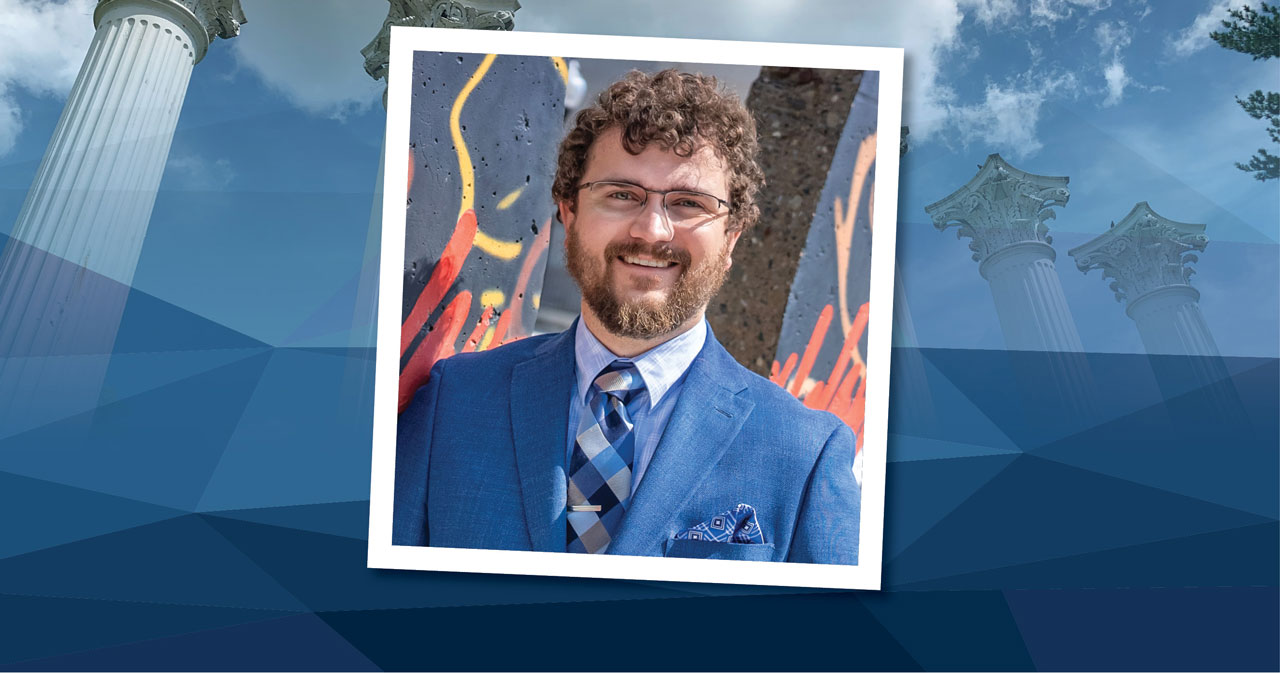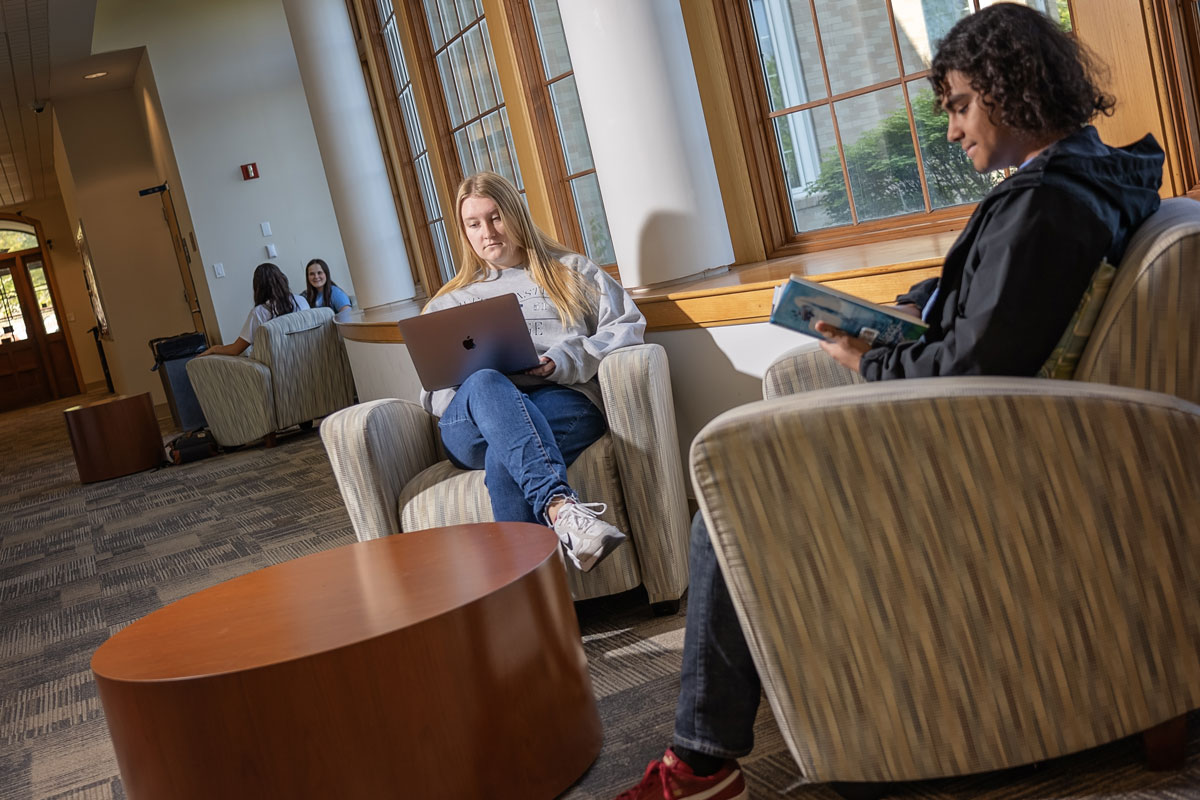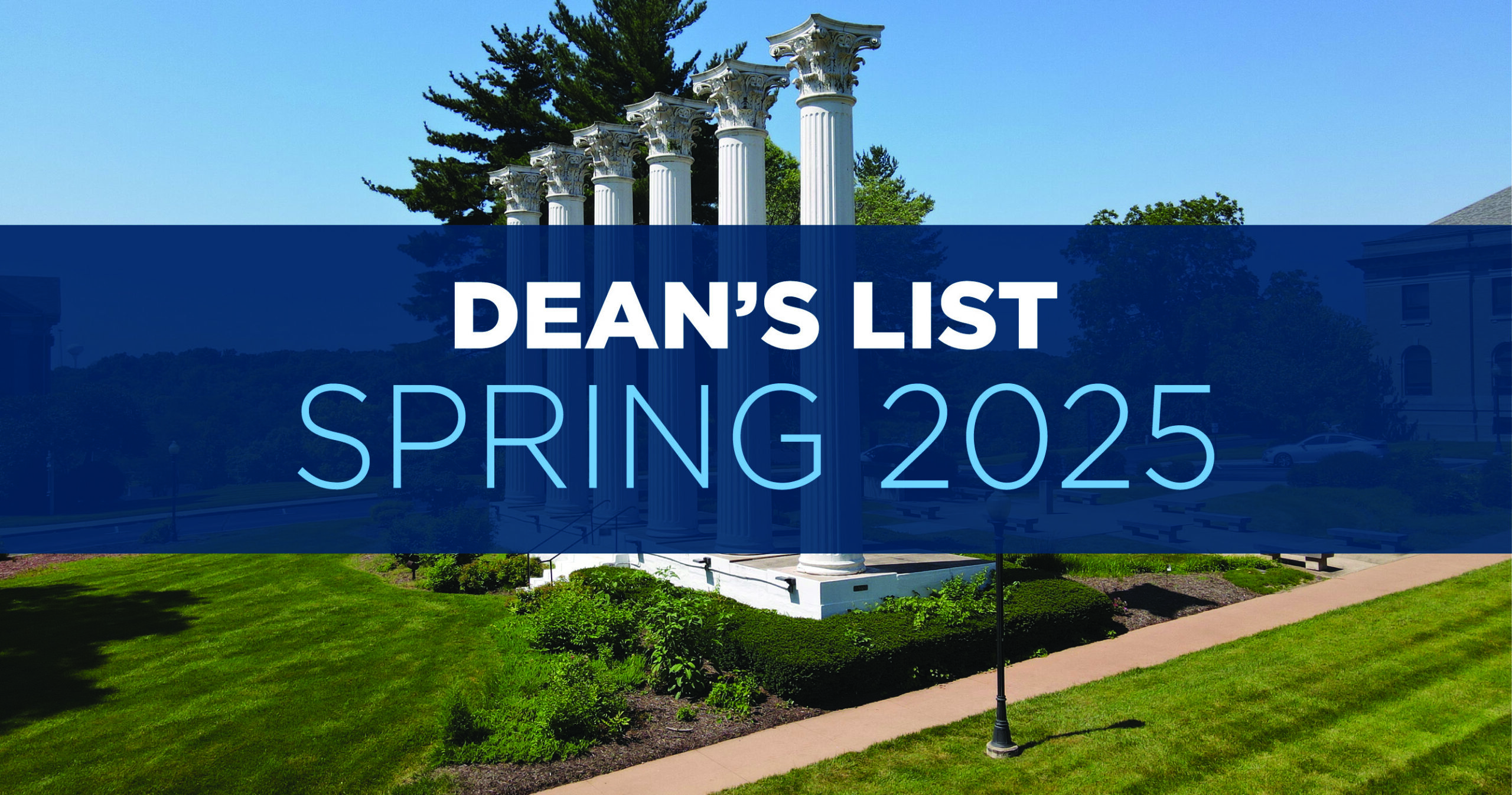Consider the dilemma of a college freshman who excelled in high school math but now is enrolled in Calculus I despite planning to major in history, and the student is suddenly struggling. Or a transfer student from a community college who lacks the math credits typical for sophomores but is eager to catch up and pursue medical school.
These are real-life challenges — not “solve for X” problems — that Dr. Erich Jauch, Assistant Professor of Mathematics, is addressing through the College’s new Math Pathways Program.
As coordinator of the program, Jauch ensures all Westminster students receive the appropriate mathematical education for their majors and skill sets. The College subsequently meets students at their individual level and guides them, in a personalized approach, through all required math coursework.
Jauch explains, “My goal is to ensure student success by strengthening the support systems we offer and making them more effective and accessible for all learners.”
How the Program Works
After arriving at Westminster, students are assessed and placed in courses of no more than 24 students in one of three pathways: Sciences, Statistical, or General.
In all three pathways, courses are taught by experienced faculty members who are excited about the subject matter. They also are unbothered by mathematics being a secondary focus for some students.
In short, Westminster mathematics faculty members are happy to support those who plan to enter politics, for example, as well as those enrolled in the College’s pre-engineering program.
Similar to a national initiative by the same name, Westminster’s Math Pathways Program specifically aligns with the College’s particular mathematical requirements. The program also goes above and beyond by providing additional help to those who need it. Students simply sign up for a corequisite one- to two-hour course to receive additional instruction and address problems they are specifically encountering in class. Additional help is also provided in the College’s new Math Lab that is staffed by student tutors who are vetted by Jauch and other Math Pathways faculty members.
Success by the Numbers
Since Jauch implemented the program in fall 2023, the Department of Mathematics is seeing success: The percentage of students who typically earn a D or F or withdraw altogether, known as the DFW rate, has dropped by 10%. For those enrolled in corequisite support courses, the DFW rate has dropped 50% to 100%.
Jauch’s Methodology
The inroads taking place in Westminster’s mathematics department aren’t entirely new to Jauch, whose passion revolves around teaching introductory math courses and addressing math anxiety in students.
Before arriving at Westminster in 2023, Jauch served as a visiting professor at the University of Wisconsin – Eau Claire, where he used fun activities in his teaching: solving math mysteries, perfectly slicing cake using mathematical concepts, and reading about mathematicians from diverse backgrounds.
At Westminster, Jauch is implementing many of the same techniques and activities so that students do more than excel in their math coursework. They might also learn to love math along the way. Because, ultimately, he believes all students are on a mathematical journey, and focusing on the learning process is more important than just focusing on grades.
Jauch reflects, “Looking ahead, I am focused on exploring and designing future courses that reflect the evolving demands of education, creating clear and engaging pathways for students to thrive in their journey.”
Sarah Rummel Backer is the Director of Media Relations and Senior Writer at Westminster College in Fulton, Missouri. A proud Westminster graduate, Sarah has more than 20 years of experience in marketing and strategic communications in the areas of higher education, medicine, agriculture, and the private business sector.






